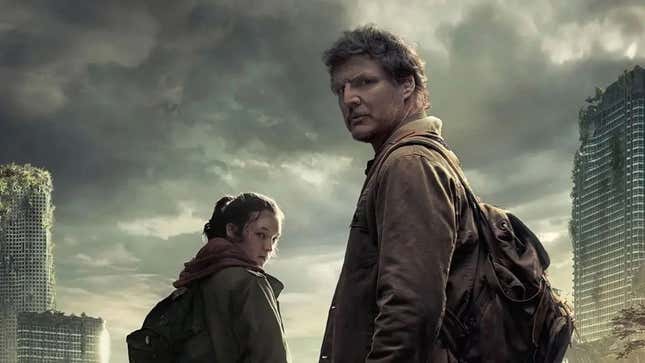
While The Last Of Us TV show has remained very faithful to the PlayStation, it’s occasionally deviated in significant ways. Episode three, which aired last night, showcased the biggest change from the source material yet, and co-creators Neil Druckmann and Craig Mazin have tried their best to explain why in a new interview with IGN.
Spoiler Warning: the following post details major plot points from both the game and the show. If you haven’t played or seen either one yet, now’s your chance to hit the brakes and turn back.
Titled “Long, Long Time,” episode three of The Last Of Us TV show finally introduces Bill, a bellicose but no-bullshit survivalist played by Nick Offerman (Parks And Recreation, Devs). The game alludes to Bill having a romantic relationship with a man named Frank, but never goes into detail. Last night’s episode not only delved into the relationship in detail via flashbacks, it also changed how it ended.
“When we got to this part in the season, Craig brought up a really interesting point which is... there’s a lot of examples of things not turning out well for people, and often those are reflections and cautionary tales for Joel of ‘here’s what you stand to lose’,” Druckmann told IGN. “It was, what if we show them what you could stand to win?”
In the game, Bill helps Joel and Ellie find a truck they can use to head west. Bitter and foul-mouthed, he’s the lone person left in a town called Lincoln, surrounded by infected and his home-made booby traps. He lectures the pair on how caring about others is a sure-fire way to get yourself killed, mentioning a close partner he tried to take care of in the past. Later on that partner is revealed to have hanged himself after becoming infected, writing in a note that it was ultimately still better than remaining with Bill.
In the show, Bill is already gone by the time Joel and Ellie arrive in Lincoln. And viewers get to see how Frank, played by Murray Bartlett (Looking, The White Lotus), first meets Bill, as well as bits and pieces of the 20-year relationship that followed. Frank eventually becomes debilitated by a terminal illness and Bill helps them both take their own lives together. When Joel and Ellie arrive, they find a letter from Bill talking about how protecting Frank after the outbreak was precisely what had made his life worth living, a complete reversal from what happens in the game. The change was apparently Mazin’s idea, though Druckmann warmed up to it when they did the math on how it would help support the rest of the story.
“I think it is a happy ending,” Mazin told IGN. “I think we tend to view death as failure, particularly when you’re talking about playing a video game. It is literally failure. And for our show so far, there’s been some brutal moments where Joel has failed or at least perceives that he’s failed: he failed his daughter, he’s failed Tess, and he’s certainly feeling that weight at both the beginning and end of this episode.”
It’s this sort of compassion and hope that The Last Of Us was arguably missing, and Druckmann said the changed plot point also served as a warning sign for Joel; that, without someone to take care of, surviving just to survive is pointless. It’s also the sort of deviation Druckmann would have said “fuck no” to in the past, he told IGN. “Are we better in this version of the story, in this other medium, or are we worse?” he said. “If we’re better, we should embrace it fully. And this was such a beautiful story. It was very easy for me to say, ‘Let’s do it. Sounds amazing.’”